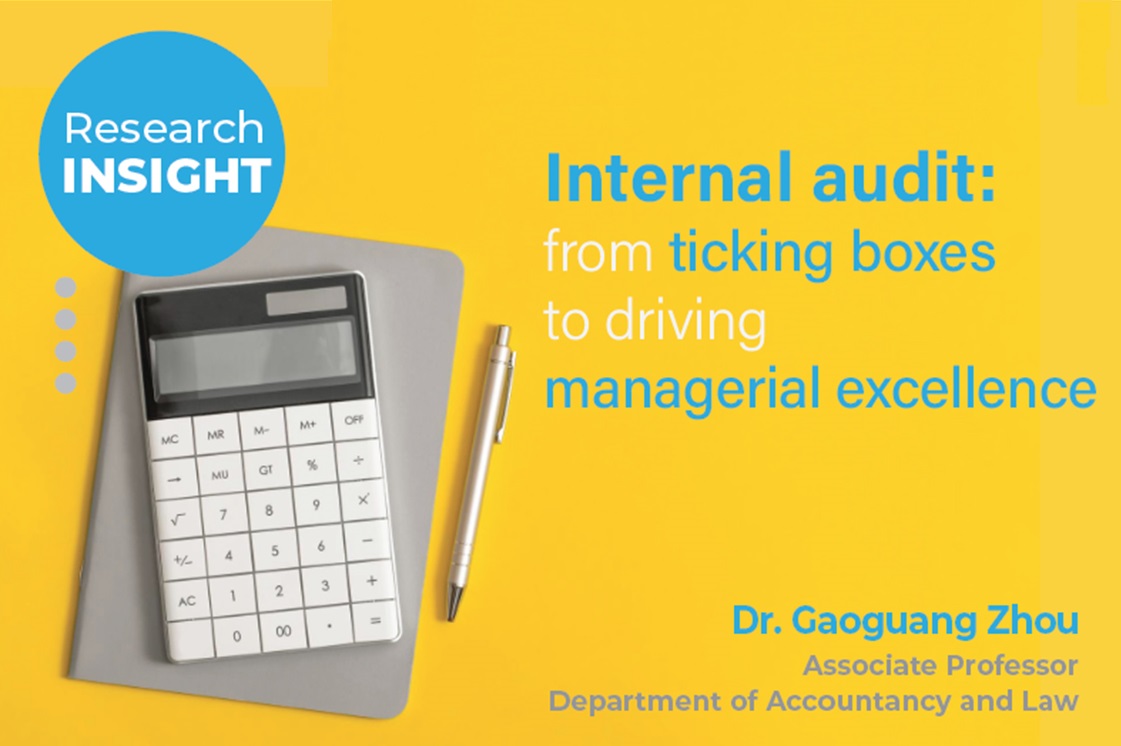School of business - research
Internal audit: from ticking boxes to driving managerial excellence


If not as glamorous as the police’s Internal Affairs division tasked with chasing dirty cops, the profile of internal auditors – the people hired to look into what’s happening in their own company before it’s too late – has been on the upswing. Fed by the greed exposed by accounting scandals like Enron and Parmalat and the malfeasance of the financial industry that triggered the 2008 financial crisis, internal audit has become a key corporate function.
Recognised for contributing to good corporate governance in western jurisdictions like the UK and the US, internal audit has been credited with everything from constraining earnings management to deterring management misconduct and reducing fraud. The situation is different in China. Developed in the 80s as a tool for supplementing state audit, the internal audit function in the PRC has evolved beyond promoting good corporate governance. Acting as corporate sleuths like their western counterparts, internal auditors in China were also initially perceived as government-empowered management consultants. However, from 2000s onwards, the function has evolved into an important corporate governance mechanism for strengthening internal control and risk management in listed companies. In “Can internal audit functions improve firm operational efficiency? Evidence from China”1, a team of researchers investigated whether internal auditors in China can actually help improve firms’ operational efficiency. It turns out they do.
Combining internal audit and financial data from a sample of Chinese listed firms over the 2011–2013 period, the research shows that a quality independent financial audit – defined using factors such as reporting lines as well as the educational background, compensation and professional certification of the audit team – was positively associated with firm’s operational efficiency as measured by a number of financial indicators. Moving away from merely verifying compliance with regulations, internal audit teams actually helped management deliver better results.
Interestingly, findings show that if the competence of the internal audit staff appeared instrumental in improving firm’s operational efficiency, its independence seemed irrelevant. This makes sense since an internal audit team composed of qualified staff would be better able to identify important information and work with management to improve processes. Meanwhile, the independence of an audit team makes it more difficult to gain the confidence of managers, effectively precluding it to go beyond verifying compliance.
Perhaps less surprisingly, the positive impact of a quality internal audit on efficiency only shows up in firms that already have effective corporate governance to begin with, or in companies operating in Chinese provinces known for having high-level market-based institutions. Both these elements help entrench the credibility and authority of internal audit teams. Validated by the board and regulators, internal audit teams are thus accepted as partners by management instead of being viewed as troublemakers. Finally, the impact of the internal audit function is both direct and indirect, as its mere existence has ripple effects extending throughout the organisation. In this respect, appointing internal auditors might be an cost-effective way to improve governance while sending a signal that things are set to change.
Reference:
Chen, Y., Lin, B., Lu, L., & Zhou, G. (2020). Can Internal Audit Function Improve Firm Operational Efficiency? Evidence from China. Managerial Auditing Journal, 35(8), 1167-1188.